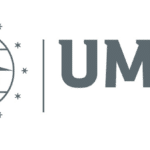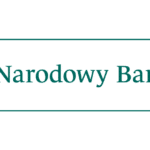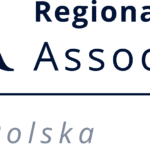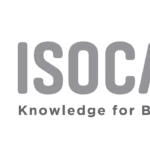2019 RSA CEE Conference Sponsors and Supporters
We would like to thank conference delegates who have made a donation to the RSA as part of this conference. Your financial contribution helps us to continue our work and offer free events such as the 2nd CEE conference in Lublin. Thank you!

The Faculty of Earth Sciences and Spatial Management was created in 2011 following the transformation of the Faculty of Biology and Earth Sciences into two separate faculties. Its structure consists of 14 organizational units (11 Departments, 2 Laboratories and the Research Station in the village of Guciów, the Roztocze region) representing the most important research trends in Earth sciences and spatial management. The Faculty has a modern, innovative and functional teaching and research building with advanced analytical and laboratory equipment meeting world standards and comprising top-class research apparatus housed in several specialist laboratories, and with excellent teaching facilities adjusted to the needs of students in three fields of study: geography, tourism, and spatial management. The Faculty’s new research priorities based on the scientific tradition of the Lublin geographic center and meeting the challenges of the present day comprise the following scientific specialties: 1) Paleogeography of the Central and Eastern European Cenozoic, 2) The condition and changes of the geographical environment of polar and sub-polar areas, 3) Dynamics of contemporary transformations and the environmental protection of South-Eastern Poland, 4) Transformations in the spatial organization and socio-economic structures in Poland as compared with Europe, with special consideration of border areas, 5) Development determinants and directions of transformations in the cultural landscape, 6) Natural, economic and social aspects of tourism and recreation development, 7) Theory and practice of spatial management, 8) Application of new methods and techniques in investigating the natural environment, 9) Problems of contemporary geographical and ecological education.

Statistics Poland is an office of government administration that serves the President of Statistics Poland, charged with collecting and publishing statistics related to the country’s economy, population, and society, at the national and local levels. The President of Statistics Poland is a central body of public administration in the field of statistics, performing his duties with assistance from official statistics services – directors of sixteen regional statistical offices and service units of official statistics.
The official statistics system constitutes one of the fundamental public and countrywide elements of the state’s information system of a democratic society, providing state organs, public and local government administration, the economic sector and the public with official statistical data on the economic, demographic, social and natural environment.

Narodowy Bank Polski is the central bank of the Republic of Poland. Its tasks are stipulated in the Constitution of the Republic of Poland, the Act on Narodowy Bank Polski and the Banking Act. The fundamental objective of the NBP’s activity is to maintain price stability. Under the Monetary Policy Strategy beyond 2003 drawn up by the Monetary Policy Council, the objective of NBP is to stabilise the inflation rate at the level of 2.5% with a permissible fluctuation band of +/- 1 percentage point.

Lublin with its 700-years long heritage and population of 340,000 inhabitants, is the largest economic and academic centre in Eastern Poland and the only city in the greater region with a metropolitan profile. Lublin, one of the most dynamically developing Polish cities, is currently perceived as a key business location in Eastern Poland – preferred location for investments in the services sector and meeting industry, as well as one of the six largest IT ecosystems in the country. The city is distinguished by a very high level of investment outlays, both in the private and public sector. A very pronounced city’s academic character is shaped by 9 higher education institutions with its 65,000 students’ community, making Lublin one of the country’s leading academic centres. Lublin’s academic industry strengthens the economy, openness and cosmopolitan character of the city, leveraging level of internationalisation – almost 10% of students come from abroad, what positions Lublin as the most internationalized academic city in Poland.

The Centre for European Regional and Local Studies (EUROREG) based in the University of Warsaw is Poland’s leader in interdisciplinary research and education in the field of regional and local studies and policies. At present, the EUROREG staff has 18 research personnel (specialising in economics, sociology, political science, law and administration) and 3 support personnel. The Centre offers four-semester postgraduate (MA) programme Urban and Regional Studies. The programme includes a range of interdisciplinary courses in: geography, economics, public governance, management, sociology, political studies, international relations and statistics. Special attention is paid to critical analysis of the implementation and effects of EU policies (territorial, cohesion and competition) as well as regional and global governance. EUROREG cooperates with a large number of scientific and research institutions, organisations and universities (World Bank, OECD, Regional Studies Association, etc.). EUROREG is also engaged in many wide-ranging projects, analyses and expert’s studies (Horizon 2020, ESPON, National Science Centre, etc.). EUROREG has a broad offer of publications, mostly in Polish, and, though less so, in English.

The Poland Section of the RSA and EUROREG (Centre for European Regional and Local Studies, University of Warsaw) publish “Studia Regionalne i Lokalne” (Regional and Local Studies), a leading Polish quarterly journal in empirical analysis as well as theoretical development in the field of regional and local studies. Please click here to access the RSA Poland Section website.
The Ukrainian Ambassador’s mission is to popularise the RSA among the researchers and practitioners working in the area of regional and urban studies in Ukraine, including early career researchers. This contributes to the expansion of the research networks and inclusion of Ukrainian researchers into international scientific collaboration. One of the Ambassador’s priorities is the provision of travel grants to researchers wishing to participate in RSA conferences. this responds to one of the greatest challenges faced by Ukrainian colleagues – lack of public funding for international collaboration and participation in conferences outside of Ukraine.

The International Society of City and Regional Planners (ISOCARP) is a global association of experienced professional planners. It was founded in 1965 in a bid to bring together recognised and highly-qualified planners in an international network. The ISOCARP network brings together individual and institutional members from more than 80 countries worldwide. As a non-governmental organisation, ISOCARP is recognised by the UN, UNHCS and the Council of Europe.